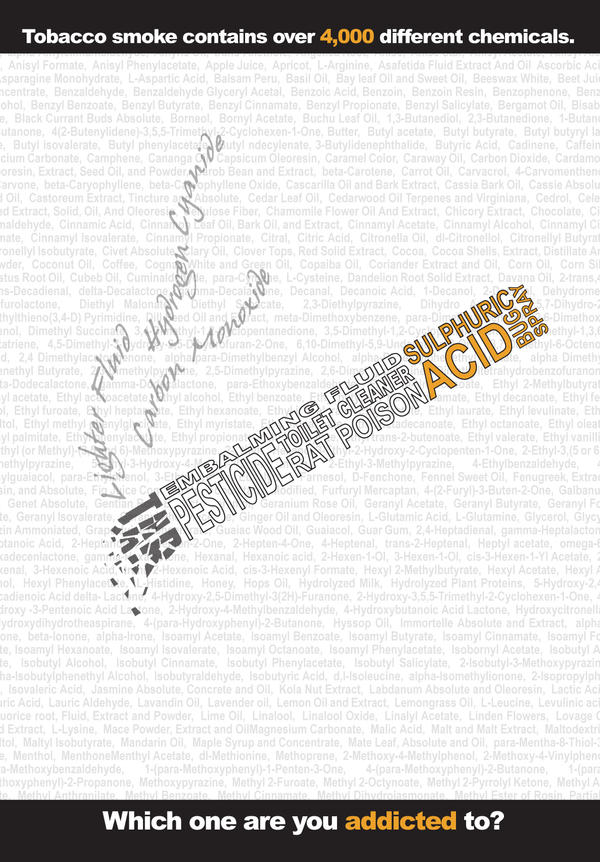The mid-term elections are coming up in only a few weeks, which means our nation's ritual democratic exercise in absurdity—that is, political campaigning—is fully underway.
In trying to figure out why these campaigns always become so ridiculous (e.g. by running ads that
compare the opponent to the Taliban, or
start off with "I am not a witch"), it's easy to blame voter stupidity. It's tempting to believe that if only everyone were smart and educated, politicians wouldn't be able to confuse or fear-monger voters so easily, and, hopefully, we could have a less chaotic democracy.
However, William Riker, a political philosopher at the University of Rochester, argues convincingly that democracy can be inherently unstable. His analysis in
Liberalism Against Populism, which I present below, applies Social Choice theory to democracy in a fascinating way. It's one of the most powerful theories I've heard.
Preliminaries
Riker employs a lot of technical vocabulary and notation, which I'll define here first.
X=(x, y, z, ...) represents a set of alternatives. Alternatives can be anything—bundles of goods, motions on the House floor, values, or candidates running for election.
Preference is a relation between two alternatives, with three possibilities: either xPy (x is preferred to y), xIy (x is just as good as y), or xRy (x is at least as good as y; this condition is also known as weak preference, with xPy representing strong preference).
Rationality requires that preferences be complete, reflexive, and transitive. Completeness means that a person should be able to come up with a preference relation for any two options. Reflexive means that an option x is at least as good as itself (this is to ensure people aren't schizophrenic, basically). Transitive means that if xPy and yPz, then xPz.
1
A
Social Welfare Function (SWF) is a function that takes a set of individual preferences and gives an overall group preference. If, for example, I'm in a club with three members that has to decide on a name, and there are three names avaiable, then the SWF takes our individual rankings and comes up with a ranking for the group. For this ranking to make any sense, then we require it to follow the same rationality conditions that we require the individual members themselves—completness, reflexivity, and transitivity.
Condorcet Voting is a democratic procedure for choosing among three or more alternatives that involves taking simple majority votes on all pairwise alternatives. To illustrate, we have three people—A, B, and C—who are choosing among alternatives x, y, and z. They have the following preference orderings:
A: x y z
B: y x z
C: z x y
When we take pairwise votes we ask how many people prefer x to y, y to z, and z to x. In this example it turns out that on the vote
x or y, x wins; on the vote
y or z, y wins; and on the vote
z or x, x wins. This gives us social preferences of xPy, yPz, and xPz, which together gives us a social ordering of x, y, z; x is the winner.
The
Condorcet Voting Paradox is when individual preferences are such that the Condorcet Voting procedure doesn't yield a transitive social ordering, but rather
cycles. If, for example, our three people (A, B, C) have the following preferences,
A: x y z
B: y z x
C: z x y
then we have xPy, yPz, zPx, or in other words, x beats y, y beats z, but z beats x! The social ordering is cyclical, x, y, z, x, which makes each option equally valid as the social choice.
Arrow's Impossibility Theorem
The formal problem is that we want a fair, reliable, logical, and democratic way of choosing from three or more alternatives. In other words, we want a democratic way of aggregating individual preferences that really reflects "the popular will."
The starting point for the analysis is Arrow's Impossibility Theorem, which shows that there is no SWF for three or more alternatives that also satisfies "some reasonable conditions of fairness on the method and a condition of logicality of the result" (Riker 116).
This may sound rather abstract, but Riker takes this formal problem and applies it quickly to democracy by modeling democracy as a SWF: voters have certain individual ranking of candidates, and democracy amalgamates those individual preferences into a social choice.
The way the proof works is that first Arrow gives six basic, logical conditions that we can generally agree a SWF should have, and then shows how they contain a contradiction. This method is called axiomatic social choice theory, because the theories are built up from axioms, or conditions. The axioms are (following Riker 116-119):
- Universal admissibility of individual orderings: People should be able to rank alternatives in any way they want, as long as it's rational.
- Monotonicity: If a person raises the value of a winning alternative, it cannot become a loser; or, if a person lowers the value of a losing alternative, it cannot become a winnner.
- Citizens' sovereignty or Nonimposition: An alternative x is imposed if it is the winner no matter what set of individual preference orderings are given.
- Unanimity: If everyone preferes x to y, then the SWF should not choose y. Riker notes there are only two ways of violating unanimity: one, if the SWF is not monotonic, and two, if the method of amalgamation of preferences imposes x regardless of the set of preferences.
- Independence of Irrelevant Alternatives: Adding alternatives to an original set of profiles shouldn't affect the SWF's relative ranking of the original alternatives. For example, if in the original profile (x, y, z) everyone prefers x to y, adding w to the list shouldn't make y somehow place higher than x. Similarly, subtracting alternatives shouldn't affect the relative ordering of the remaining alternatives. If everyone prefers x to y, subtracting z shouldn't cause y to beat x.
- Nondictatorship: There should be no person whose preference xPy sets the social choice as x, regardless of what other people think.
The proof of Arrow's Theorem involves exploiting the Universal Domain axiom to allow for Condorcet Voting Paradox preferences, showing that these preferences contain a dictator for one alternative, and then showing that if we have a dictator over one alternative then he's a dictator over all alternatives.
When faced with this result, one's natural reacction is to question the necessity of some of the axioms.
Independence of Irrelevant Alternatives seems particularly suspect, since, for example, it exludes all plurality voting systems. Nevertheless, these axioms are important. They ensure that the result of the aggregation process is not manipulable, and to remove any one of these is to open up the system to agenda setting, strategic voting, and other forms of manipulation.
2
Double Peaked Preferences and Strategic Voting
Arrow's theorem only applies when we have cycles. When do cycles occur in politics?
In politics, our alternatives are almost always positioned along a spectrum, most commonly the liberal/conservative one. To model what cyclical preferences would look like in actual politics, we take our alternatives x, y, z to represent candidates from various parts of the liberal/conservative spectrum. The Condorcet Voting Paradox over these candidates would look like:
Both A and B's preferences make sense: the farther they move away from their preferred candidate, the less they like the alternatives. C, on the other hand, has strange preferences. As he moves away from his most preferred candidate, z, he likes the alternatives less and less. But after a certain point, as he moves even farther away towards x, he starts liking the candidate more!
What makes A and B's preferences sound is that they are
single-peaked. When you graph the preferences on a political axis, they only have one peak, and as you move further from the peak preference only decreases. By the opposite token, what makes C's preferences illogical is that they are
double-peaked. Double-peaked preferences come in many shapes, but they all have the property of increasing preference at some point as one moves away from the preferred alternative.
Why would double-peaked preferences occur? Riker argues they result from disagreement about the meaning of the political spectrum. Person C is probably not only be looking at the candidates in terms of the liberal/conservative axis, but also the environmental axis, the trustworthy axis, or even the good-looking axis. This transforms a 1-dimensional problem into a multi-dimensional problem. As long as these various axes overlap, then there will be no disagreement about the axis; but the more orthogonal these axes are, the more likely we are to see double-peaked preferences.
Critics of Riker have argued that studies show that Americans overwhelmingly agree on the liberal/conservative axis. That seems to save democracy from Arrow problems, right? Riker counters that even if society doesn't actually have cyclical preferences, individuals can vote strategically to create them. When we have cycles, we have no true social choice, which means the result depends entirely on how one sets the agenda and the voting system. Strategic voting thus allows for manipulation of the social choice.
Riker's argument is especially strong because he not only shows that it is theoretically possible to strategically vote, but also provides examples from U.S. history where he argues that it's happened, such as the repeated defeat of the Powell amendment to the federal education bill in the House of Representatives.
Chaos in Politics
Thus, when Riker claimed that democracy was inherently choatic, he was arguing that democracy is susceptible to cycles, and cycles allow for manipulation of the social choice.
I see Riker's argument applying to political campaigning in that campaign managers often design campaigns to shift the terms of the debate. Ads will come out that arguing "this election isn't about small government, it's about jobs"; or, as is more often the case, "this election isn't about policy, it's about who looks more presidential/American/empathetic/working-class." In Rikerian terms, campaign managers who find their candidates losing on the traditional left/right policy axis try to find other orthogonal axes to divide voters, which creates cycles and allows for maniuplation. Right now these other axes are stupid because we have stupid voters. But even if all voters were smart, there always exist new axes (e.g. freedom) that bisect the traditional left/right spectrum and divide even intelligent voters.
Endnotes:
1. We have good reasons to believe that these conditions make sense; if you need convincing, see Chapter 1 of On Philosophy, Politics, and Economicsby Gerry Gaus.
2. In fact, one very infamous and controversial paper, "Agenda Influence and Its Implications," exploits the fact that all voting systems have a weak spot. Levine, president of the local flying club, has to decide how to structure the voting for the club's new round of purchases. His problem is that his preferences go against what everyone else in the group wants. Levine turns to Plott, an economist, and the two of them devise a strategic voting system that sets up the votes in such a way that Levine gets what he wants—and he does! Not surprisingly, after the paper is publihed, Plott and Levine get a lot of flak for their "unethical" study.























